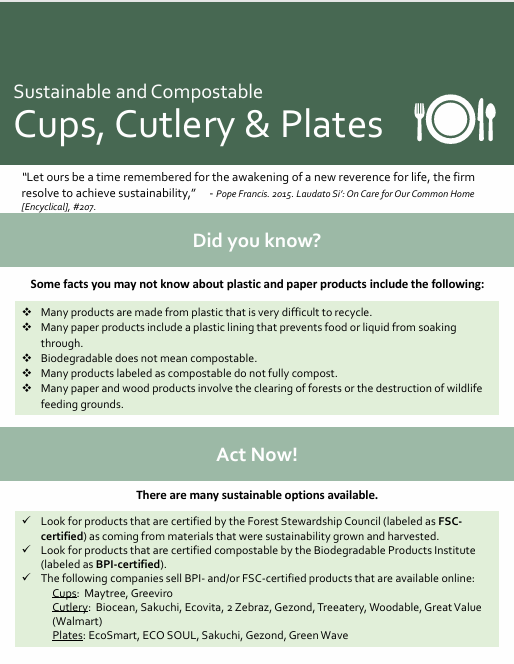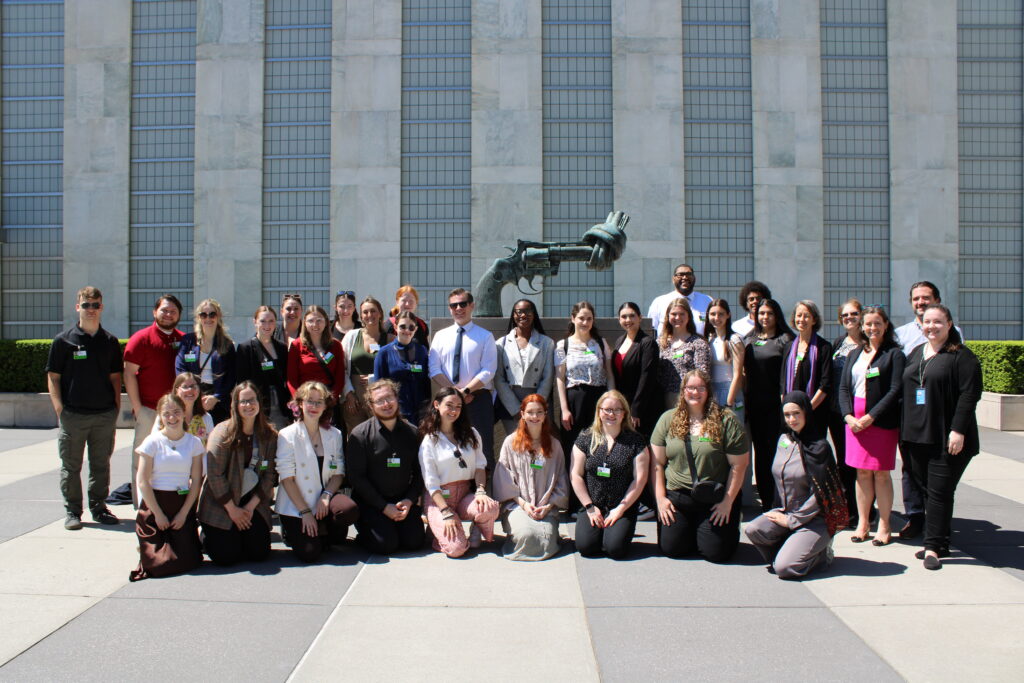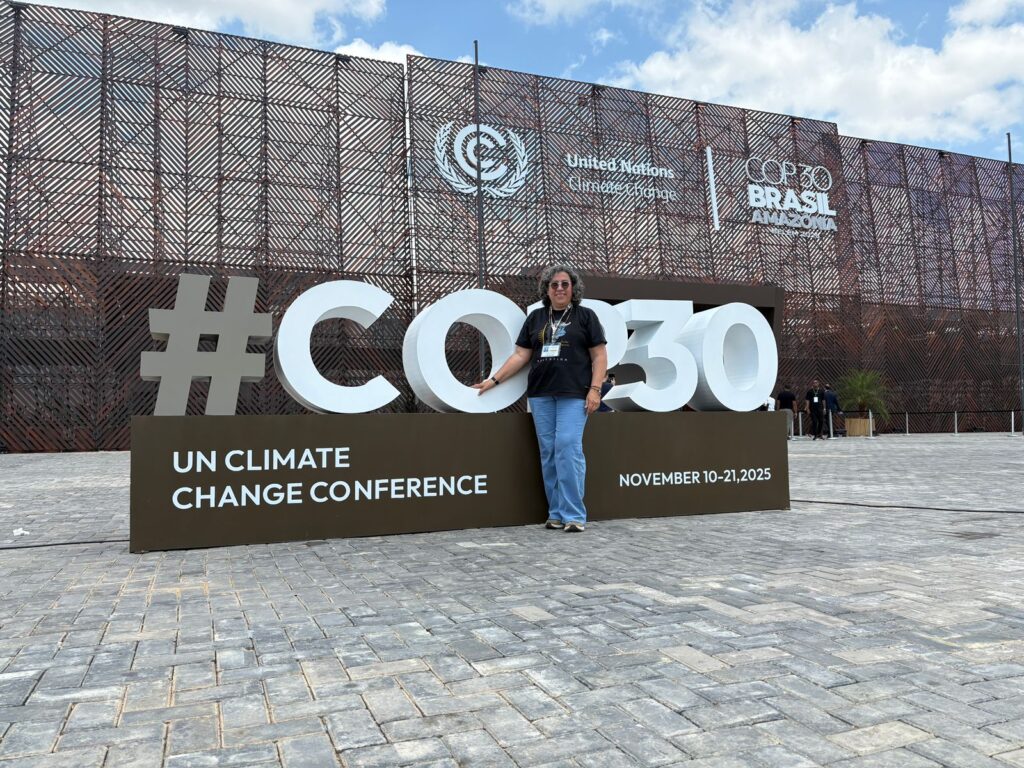February 2026
Articles from Mercy:
- • Critical Considerations: We have a choice: oligarchy or democracy? (Karen Donahue, RSM)
- • Critical Concerns in Focus: Immigration (español) (Mike Poulin; Institute Justice Team)
- • Names and naming make a difference in perceptions of reality (Rose Marie Tresp, RSM; Institute Justice Team)
- • Reflections on Honduras (Mike Poulin; Institute Justice Team)
Local Justice News & Upcoming Mercy Events
Justice Resources & Links
Critical Considerations
We have a choice: oligarchy or democracy?
Karen Donahue, RSM
For more than ten years now, Oxfam International has issued an annual report on global inequality, which it usually releases while the World Economic Forum is meeting in Davos, Switzerland. The 2026 report, Resisting the Rule of the Rich: Protecting freedom from billionaire power, looks at how massive economic wealth is now morphing into political power and shifting governmental priorities away from the basic needs of the majority of the population, focusing instead on endeavors that serve the interests of the super-wealthy.
There are about 3,000 billionaires in the world today, with a net worth estimated to be around $18.3 trillion. A trillion is 1,000 billion. To give some perspective, only about twenty of the world’s 200 nations had a GDP (gross domestic product) greater than $1 trillion in 2025, according to World Bank and IMF (International Monetary Fund) data.
The report looks at how the super-rich use their wealth to not only defend their own interests but also to thwart progressive policies and erode civil and political rights. Just two examples from recent U.S. experience are the activities of Elon Musk and DOGE (Department of Government Efficiency) and the tax and spending reconciliation bill passed in July 2025.
Musk slashed programs and gutted agencies that provided vital services. The tax and spending reconciliation bill made the 2017 tax cuts permanent. These cuts overwhelmingly benefit the wealthiest people. At the same time, this legislation eliminated the Affordable Care Act tax credits – which help people purchase health insurance – and cut nutrition assistance.
The billionaire class also has an outsized influence on what people see and hear through the media. According to the report, over half of the world’s largest media companies have billionaire owners, and nine of the top ten social media companies are run by just six billionaires.
The report calls for a number of measures to reign in corrosive billionaire influence. These include effective taxation, a ban on campaign financing by the rich, and legislation to regulate lobbying and assure media independence.
A century ago, US Supreme Court Justice Louis Brandeis said, “We must make our choice. Either we can have extreme wealth in the hands of the few, or we can have democracy. We cannot have both.”
Note: the report is lengthy. However, there are informative graphics and an Executive Summary.
Critical Concerns in Focus: Immigration
Mike Poulin; Institute Justice Team
As it has for decades, the Mercy Community continues to stand in solidarity with and minister to immigrants and immigrant communities, including being present at recent protests and demonstrations.
Mercy’s migrant ministry is carried out by sisters, associates and sponsored works across the United States. Below are recent examples of efforts to address the Critical Concern for immigration.
In San Diego, Sister Mary Waskowiak regularly accompanies migrants to their court hearings, where her status as a Catholic Nun has, at times, carried weight with one judge. She continues her work through Casa Misericordia in collaboration with the Pope Francis Center, a new parish-based organization that offers legal resources, social services, and emotional and spiritual support to immigrants. To learn more about her work in Southern California, read Sister Mary’s op-ed in the San Diego Tribune in December of 2025, or watch this video interview from 2023, featuring her and Sister Mary Kay Dobolvrony.
In Michigan, Sister Pat Lamb helped to start—and continues to serve with—the Strangers No Longer network, a coalition of faith communities committed to advocacy and direct support for immigrants in local communities. Sister Pat works closely with families in need and recently spoke at an in-service for Mercy High School staff in Farmington Hills, addressing immigration as a critical justice issue.

In the Philadelphia area, Sister Anne Connolly collaborates with members of the Jewish community on a project called Welcoming Homes, a small organization with strong connections to local shelters where unaccompanied migrant youth can live until they turn 18. Sister Anne reports, “We have found homes for 15 youth as an alternative to them being released to adult jail. We have found amazing hosts who open their homes and their hearts to these kids. School, medical care, and legal protection are top priorities. A recent arrival from Guinea and another from Guatemala are my main focus during cold winter months.” Sister Ann talks about how her time living on the U.S.–Mexico border informs her work in Pennsylvania in this 2023 video interview.
In Portland, Sister Pat Pora continues to accompany immigrants, reporting many are now absent from church due to fear of ICE. In response, the food pantry program has been making deliveries, and some schools are teaching remotely so children can remain safe at home. The spiritual community at large has been a resource for many of these communities, providing free legal training and family support. Read about Sister Pat’s work in her own words in the second half of this article.
Mercy Associate Joanne Castner participated in a Mercy-sponsored immersion trip to the U.S.-Mexico border three years ago. Since then, she has made it her mission to educate people in Pennsylvania regarding the plight of immigrants. To date, Joanne has delivered 33 talks, reaching more than 800 people. She has been welcomed to speak in communities that span the entire political spectrum.

In the San Francisco Bay area, Sisters Joan Marie O’Donnell, Judy Carle and Deborah Watson are active with advocacy groups that support immigrants. In January of this year, they participated in a two-day, multi-faith vigil and fast that included a rally to support Guillermo Medina Reyes as he prepared to appear in San Francisco federal court. Guillermo, who had been brought to the United States at the age of 6, was seeking to avoid being returned to detention. Their advocacy also includes efforts to close immigration prisons and prevent new facilities from opening. They are currently focused on opposing a prison that could house as many as 2,500 people and is operating illegally without the required permits. Sisters Judy and Joan also involve other sisters in writing letters of support to immigrants who are being held in detention. Last March, their work was featured in this article and further discussed in a September 2023 video interview.
Sister Rosemary Welsh continues her decades-long ministry with immigrants near the United States border with Mexico. Among their most urgent needs are meals at shelters and legal referrals for long-time area residents who don’t have legal status. Learn more about Sister Rosemary’s work in this video interview.
The Vermont Mercy Social Justice Committee hosted a public informational session on February 1, featuring representatives from Migrant Justice and the Vermont Afghan Alliance. Approximately 30 community members attended to learn about the organizations’ programs and the current challenges facing migrants in the community. On February 6, Vermont sisters and associates participated in a peaceful vigil organized by Vermont Faith Communities outside the courthouse in St. Albans in support of Steven Tendo, a Ugandan asylum seeker, pastor, union member and torture survivor. The vigil was originally planned to accompany Tendo to his ICE check-in. However, he was detained by ICE several days before his scheduled appointment.
In a recent Global Sisters Report article, Sister Mary Jo Baldus described the fear affecting immigrant communities and protesters in Winona, Minnesota, a community located about two hours south of Minneapolis. Mercy Associate Christine Wilde, who lives in northern Minnesota, has taken part in protests against ICE actions with her local Indivisible group. When the local Mexican restaurant closed for several days out of fear of ICE raids, her group offered support to the proprietors.
Sisters and associates in Rhode Island have played a role in the Diocese of Providence’s new immigration initiatives, including the formation of a Migration Commission and praying the rosary outside of the ICE detention center in Central Falls with Bishop Bruce Lewandowski. The Institute Justice Team also has been involved with the Immigration Coalition of Rhode Island, gatherings faith leaders around the state to prepare for a surge of immigration enforcement and advocating on several immigration-related bills in the state legislature. Up until recently, Sisters Ann McKenna and Mary Pendergast taught a course through the Diocese of Providence to prepare immigrants for the citizenship test. The recent trimester was cancelled because not enough people are coming to classes anymore due to fear in the community.
Margie Rudnik, a member of the Chicago Mercy Justice Committee, has organized associates to address immigration concerns. In collaboration with the SHARE Foundation, Margie and other associates are fundraising to support Foro de Mujeres por la Vida in Honduras, a collaborative of 15 organizations dedicated to women in Honduras. The aim is to make the country safer for women, so they don’t feel immigration is their only way to escape dangerous situations. “Safety for Those Who Stay” is the theme of the fundraising campaign.
Sisters in New Hampshire, including Eileen Brady, Rosemary Burnham, and Nat McDonough, participate in monthly vigils at the federal building in Manchester where ICE interviews take place. These vigils are interfaith and include a “Jericho Walk” around the building to raise awareness. Associate Sharon Dalton recently traveled to El Salvador and Honduras with the SHARE delegation and is working to host an Associate from Honduras in the New England area this spring.
In Connecticut, Sisters Betty Secord, Cecilia Baranowksi, Sue Keefe, Pam Michaels, Nancy Audette, and Mary Alice Synkiewicz volunteer with the Hartford Deportation Defense in collaboration with other immigration groups. Trained to understand the court proceedings and immigrants’ rights, they accompany immigrants to court hearings and ICE check-ins.
Saint Xavier University in Chicago will pilot the first Justice Roadshow in March of this year. Co-sponsored by the Institute Justice Team and the Conference for Mercy Higher Education, the roadshow will feature a week of campus activities centered on the theme of immigration. Planned activities include a service project; a “know your rights” seminar; a panel discussion on local immigration efforts; and a prayer service.
Names and naming make a difference in perceptions of reality
Rose Marie Tresp, RSM; Institute Justice Team
“A rose by any other name would smell as sweet.” This may be true for roses, but it’s not true in other contexts. Even our perceptions of what we buy and eat are influenced by the name. The Chinese gooseberry in our markets is sold as the kiwi. Choosing a name for a new business or product can contribute to their success.
How we refer to peoples or groups or situations can change our perception of those people or groups. Growing up in Texas, the people around me referred to all Latinos as Mexicans. Some of those Latino families may have lived in Texas for generations. Some may have come from other Central or South American [a.k.a. Abya Yala] countries. Today, I hear people from the continent of Africa referred to as Africans. There are 54 distinct counties in Africa. There are 23 countries in the continent of North America [a.k.a. Turtle Island], but the citizens of the U.S. have appropriated the name “American.”
Even more important though is how we conflate terms. There seems to be an effort to label all undocumented immigrants – those without legal status – as “criminal immigrants” or “criminal aliens.” Protesters or those recording ICE activities are called “domestic terrorists” by the administration. The consistent use of such labels is deliberately designed to change our mental image of immigrants or protestors.
Also, how and in what context groups are spoken of that incorrectly attributes negative qualities to an entire group makes analysis of the problem more difficult. I hear people say, “I wish the bishops would…”. Which bishops? Every bishop? The USCCB as a whole? Or people say, “Congress should…”. Yes, Congress should, but who or what group in Congress is blocking the vote or the needed change? Clearly identifying what people or portions of a group can assist in creating the desired change will assist us in identifying the pressure points.
A change in our politics and culture that is highly problematic is the recent tendency to attribute negative values or negative motivations to those we disagree with. I hear, “The persons we disagree with hate America” or “They hate democracy” or “They want to take away our freedoms”, etc. The assumption is that the other person or group does not have the same values or desires for family or friends that we have, when sometimes the reality is that they simply disagree on how to obtain those desires. In effect, demonizing the party or group or persons on the other side will not lead to compromise or peace.
Pope Leo asks us to undertake a Lenten fast that is a “very practical and frequently unappreciated form of abstinence: that of refraining from words that offend and hurt our neighbor.” He writes in his Lenten message for this year,
Let us begin by disarming our language, avoiding harsh words and rash judgment, refraining from slander and speaking ill of those who are not present and cannot defend themselves. Instead, let us strive to measure our words and cultivate kindness and respect. In this way, words of hatred will give way to words of hope and peace.
As children, we heard the rhyme: “sticks and stones may break my bones, but words will never hurt me” usually recited to children not to be too sensitive to bullying or insults. But in reality, these words are not true. Teasing and bullying can lead to depression, low self-esteem and even be a factor leading to suicide.
In the end, the words we use matter. Hearing something over and over has a way of shaping the way we think. But more importantly, the words we use reveal the way we think and care about other people. People can see and hear the words we choose to write or say, and they will know who we are by the way we shape reality with our words.
Reflections on Honduras
Mike Poulin; Institute Justice Team
The author spent five days in Honduras as part of a solidarity delegation cosponsored by the SHARE Foundation and the Sisters of Mercy of the Americas.
Everywhere I went in Honduras, there was a sense of welcome for this North American traveler who can speak only the most basic phrases in Spanish.
Upon arrival, I was met at the airport by a group of fellow delegates who had already been in the country for several days. They greeted me like an old friend. I had offered to make my own way to our meeting place, to save them from the trip to the airport, but they wouldn’t hear of it. We loaded luggage into a van and trekked across town to a public hot spring where we relaxed in warm water under the shade of trees. Afterwards, we stopped at a local take- out place for Honduran fried chicken, unique but very good, then proceeded on to our home away from home: a house on the property of the School Sisters of Notre Dame where Sister Rosa Maria Trochez and her assistants would see to our every need for the duration of our stay. All these things made the first hours of my trip feel almost like an all-inclusive vacation.

We spent our nights in the comfort of the big house, behind the security of locked gates and a watchman. Each morning, we were greeted by the beautiful expanse of property that surrounded our accommodations, complete with flowers, palm trees and roaming iguanas. When we left the grounds each day, we did so by packing into the van owned by Alvin, another one of our hosts, who transported us from door to door for every stop on our trip.
I’m sure that during the preparation for this trip I heard someone say that San Pedro Sula is among the most dangerous cities in the world. I’m also sure that it didn’t cause me concern. Because I have friends and colleagues who live there, some crime statistics wouldn’t keep me from going to visit them to learn more about their country and their work. This idea of San Pedro Sula, and Honduras in general, being dangerous has come to the forefront more as I reflect on my experience than it did while I was there.
As I reflect, it is evident to me that our hosts and travel planners put more thought into our security than I did. While the things I described above felt like, and were, thoughtful hospitality – the airport pick up, a gated property, door to door private transportation, – these were also meaningful steps to keep us safe. And they did in fact keep us safe. We did not experience, or even witness, any crime while we were in the country. But that does not mean that Honduras is a safe place. There is danger there, probably more so for its citizens and residents than for its visitors. However, even as I point out this danger, it is not my intent to discourage others from visiting this beautiful place. In fact, I want just the opposite, because I believe that the presence of delegations like this can help fan the sparks of nonviolent resistance that we witnessed during our time there.
One of our visits was with my friend, Nelly del Cid, a Mercy Associate who works with Mercy Dream Weavers, an organization that trains and supports women in defense of their human rights. Dream Weavers focuses on justice and nonviolence to address the misogyny, oppression and femicide that occur regularly in Honduras. Femicide is committed as domestic violence, gang violence and assassination. The murder of internationally recognized human rights defender Berta Cáceres is one example of assassination. Berta was murdered because of her environmental activism to stop a hydro-electric dam that would have been devastating to the Lenca people living along the Gualcarque River.

Dream Weavers is a member of the Foro de Mujers por la Vida – the Women’s Forum for Life – a consortium of sixteen organizations that support women and women’s issues in Honduras. Members of the Women’s Forum for Life seek to empower Honduran women so they can improve their lives and their communities. We visited Women’s Forum leaders at their current office space, which is inadequate for carrying out the work they want to do. Fortunately, they are making plans to move into their own building as the result of fundraising work undertaken in collaboration with Mercy Associates in the United States and the SHARE Foundation, a long-time Mercy partner.

Escaping violence is one of the reasons that women emigrate from Honduras. Individuals who experience or anticipate violence, in a community that cannot or will not protect them, often view fleeing their home as the only realistic option. The work of Dream Weavers and the Women’s Forum for Life is to establish safer places for women in Honduras, giving them the option to remain in their home country.
For those who do leave, emigration presents its own dangers. It is an endeavor filled with uncertainty and risk. Most emigrants leave behind family members who worry and wait for news. Some who leave Honduras are not heard from again. COFAMIPRO helps Hondurans discover what has happened to loved ones who have emigrated but not been in contact. Investigations are challenging and lengthy, only sometimes resulting in contact or closure.
All three of these ministries – Dream Weavers, the Women’s Forum for Life and COFAMIPRO – are involved with Radio Progresso. Radio Progresso is a local radio station known for its focus on human rights and politics in Honduras. In its efforts to report on social justice issues and politics, Radio Progresso features the work of these organizations, and many others, along with news and commentary. Even this work encounters danger. When we toured the radio station it was pointed out to us that some of the building’s windows are made with bulletproof glass, a response to the death threats that employees have received because of their work for justice.

Like my colleagues in Honduras, I have been involved in various types of social justice work for many years. Unlike my Honduran colleagues, I have not had to do this work under the specter of violence. While we all advocate for nonviolent solutions to conflict and support or provide humanitarian responses to injustice, our local realities do not pose the same challenges. As my awareness of their situation grows, so does my concern for them and the people they serve.
Apart from some clinic supplies that I was able to bring for one of the ministries, my presence in Honduras provided little in the way of direct assistance. Visiting as a delegation was an act of solidarity. Letting our friends know that we support them in their work, promising to share stories of their efforts, widening the circle of concerned individuals, these are the ways we can help.
There is more to know about Honduras. Current-day stories of situations there are incomplete without historical context, history that includes U.S. corporate, political and military interference. Critics of immigrants are often ignorant of local situations, or just in denial about how U.S. interventions are among the root causes creating realities that people find no choice but to flee. I will leave those details to other sources for now.
Article Archive
2026
February
Critical Considerations:
We have a choice: oligarchy or democracy?
Critical Concerns in Focus: Immigration (español)
Names and naming make a difference in perceptions of reality
January
Critical Considerations:
(click years to expand)
2025
December
The Catholic Church responds to the threat of authoritarianism
Critical Considerations:
The United States: global citizen or global pariah?
November
Critical Considerations:
NSPM-7: Countering or perpetrating political violence?
Advocating on harms of extractive industries
Argentina y el avance del colonialismo / Argentina and the advance of colonialism
October
Critical Considerations:
Is it time to reform the Insurrection Act?
COP 30 in the Amazon & Raising Hope in Rome
The dangers of falsely linking Tylenol to autism
September
Mercy sisters call for urgent defense of immigrants
Critical Considerations:
What is Posse Comitatus all about?
Everyday pilgrimages: the Earth is the Lord’s
August
Critical Considerations:
Are we doomed to a perpetual nuclear arms race?
Love and care of creation in local ecologies
Church document ahead of COP30
July
Critical Considerations:
What’s at stake in Israel’s destruction of Gaza?
Have you heard of Black August?
DEI—Diversity, Equity, and Inclusion
Mercy Life Gathering in Panama
June
Vampires, Sharecropping, and the Real History of Juneteenth
Protecting Children and Vulnerable Adults from Abuse in the Philippines
Critical Considerations:
What’s really driving border enforcement?
May
Critical Considerations:
April
Critical Considerations:
Water extractivism in Palestine
March
Critical Considerations:
Who benefits from tax cuts? Who pays?
NETWORK webinar on U.S. federal policy
February
National declaration of emergency in Bajo Aguán
Critical Considerations:
Has the United States declared war on immigrants?
January
If you make a mess, clean it up! (Advocacy success in NY)
Youth claim climate victory in Montana court
Critical Considerations:
2024
December
Critical Considerations:
Is the United States becoming a plutocracy?
November
Critical Considerations:
What happened on November 5, 2024?
October
Overturning the Chevron deference
Critical Considerations:
Who are the Israeli settlers and what motivates them?
Assassination of Honduran water protector deeply grieves Sisters of Mercy
September
God walks with his people: National Migration Week September 23–29
Critical Considerations:
What does CEO compensation say about corporate priorities?
Anxiety – election season can heighten it!
August
Critical Considerations:
What is Project 2025 all about?
Working to stop weapon exports to Haiti
Participating in Elections, part 2
July
Critical Considerations:
Is there a better way to spend $91 billion?
Education, Agriculture, & Emigration in the Philippines
Participating in Elections, part 1
June
Critical Considerations:
Are we creating a prison-industrial complex?
Mercy student videos address the Critical Concerns
May
Critical Considerations:
Degrowth is the only sane survival plan
Argentina and the government of hate
Listening to a chorus of voices
April
Critical Considerations:
An Israeli Jesuit reflects on war in the Holy Land
Advocacy Success! Expanded Background Checks for Gun Sales
March
Military spending and national (in)security
February
The challenge Gaza war presents for American Jews
January
Gaza war threatens credibility of West’s commitment to human rights and the rule of law
2023
December
Climate Summit fails to adequately respond to gravity of climate crisis
November
Critical Considerations:
The dangers of conflating Anti-Zionism and Antisemitism
Red flag laws in jeopardy: faith voices speak to save them
October
Jewish and Palestinian perspectives on Gaza crisis
September
U.S. China tensions impact efforts to address climate change
August
When Good Economic Policy Isn’t Enough
July
States Move to Weaken Protections for Child Workers
June
Corporate Lobbyists at Climate Talks
May
Electric Vehicle Transition Challenges
April
Repudiating the Doctrine of Discovery
March
February
The Rise of Christian Nationalism
January
2022
December
How Corporations Took Over the Government
November
The Independent State Legislature Theory Explained
October
Local Justice News & Upcoming Events
Justice Resources & Links
Mercy Justice Resource Pages
- Resources for Immigrants
- Advocacy Amplified! (Mercy Justice Videos on advocacy tools)
- Mercy Walks with Migrants (interviews with Mercy sisters on immigration work)
- Mercy Tips to Care for the Earth







